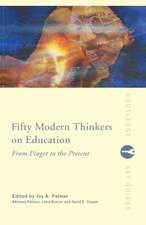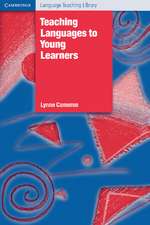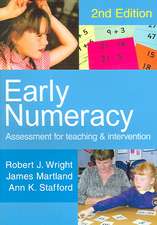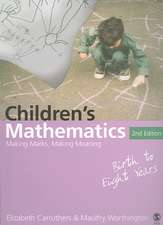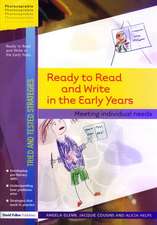The Legacy of Hans Freudenthal
Editat de Leen Streeflanden Limba Engleză Paperback – dec 2010
Freudenthal is portrayed as a universal human being by Josette Adda. He made considerable contributions to mathematics itself, e.g. on homotopy theory and Lie groups in geometry. The exposition of Freudenthal's mathematical life and work is on Van Est's account. Henk Bos discusses his historical work. The essay review of the 8th edition of Hilbert's Grundlagen der Geometrie serves as a vehicle of thought. The main part of the book, however, concerns Freudenthal's work on mathematics education. Christine Keitel reviews his final book Revisiting Mathematics Education (1991). Fred Goffree describes Freudenthal's `Working on Mathematics Education' both from an historical as well as a theoretical perspective. Adrian Treffers analyses Freudenthal's influence on the development of realistic mathematics education at primary level in the Netherlands, especially his influence on the Wiskobas-project of the former IOWO. Freudenthal once predicted the disappearance of mathematics as an individual subject in education sometime around the year 2000, because it would by then have merged with integrated thematic contexts. Jan de Lange anticipates this future development and shows that Freudenthal's prediction will not come true after all. Reflective interludes unveil how he might have influenced those developments.
Freudenthal contributed a wealth of ideas and conceptual tools to the development of mathematics education -- on contexts, didactical phenomenology, guided reinvention, mathematisation, the constitution of mental objects, the development of reflective thinking, levels in learning processes, the development of a mathematical attitude and so on -- but he did not design very much concrete material. Leen Streefland deals with the question of design from a theoretical point of view, while applying Freudenthal's ideas on changing perspective and shifting.
For teachers, researchers, mathematics educators, mathematicians, educationalists, psychologists and policy makers.
| Toate formatele și edițiile | Preț | Express |
|---|---|---|
| Paperback (1) | 634.49 lei 6-8 săpt. | |
| SPRINGER NETHERLANDS – dec 2010 | 634.49 lei 6-8 săpt. | |
| Hardback (1) | 641.71 lei 6-8 săpt. | |
| SPRINGER NETHERLANDS – 31 ian 1994 | 641.71 lei 6-8 săpt. |
Preț: 634.49 lei
Preț vechi: 746.47 lei
-15% Nou
Puncte Express: 952
Preț estimativ în valută:
121.43€ • 125.44$ • 101.06£
121.43€ • 125.44$ • 101.06£
Carte tipărită la comandă
Livrare economică 26 martie-09 aprilie
Preluare comenzi: 021 569.72.76
Specificații
ISBN-13: 9789048143542
ISBN-10: 9048143543
Pagini: 176
Ilustrații: VIII, 164 p.
Dimensiuni: 210 x 297 x 9 mm
Greutate: 0.25 kg
Ediția:Softcover reprint of hardcover 1st ed. 1994
Editura: SPRINGER NETHERLANDS
Colecția Springer
Locul publicării:Dordrecht, Netherlands
ISBN-10: 9048143543
Pagini: 176
Ilustrații: VIII, 164 p.
Dimensiuni: 210 x 297 x 9 mm
Greutate: 0.25 kg
Ediția:Softcover reprint of hardcover 1st ed. 1994
Editura: SPRINGER NETHERLANDS
Colecția Springer
Locul publicării:Dordrecht, Netherlands
Public țintă
ResearchCuprins
Une lumière s’est éteinte. H. Freudenthal — Homo Universalis.- HF: Working on Mathematics Education.- ‘The Bond with Reality is Cut’ — Freudenthal on the Foundations of Geometry around 1900.- Hans Freudenthal (17 September 1905–13 October 1990).- Thoughts on Teaching Mechanics. Didactical Phenomenology of the Concept of Force.- Wiskobas and Freudenthal: Realistic Mathematics Education.- The Design of a Mathematics Course. A Theoretical Reflection.- Between End and Beginning. Mathematics Education for 12–16 Year Olds: 1987–2002.- Hans Freudenthal, Revisting Mathematics Education. China Lecturers, Mathematics Education Library, Volume 9, 1991.

